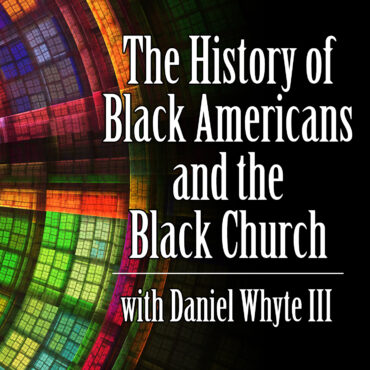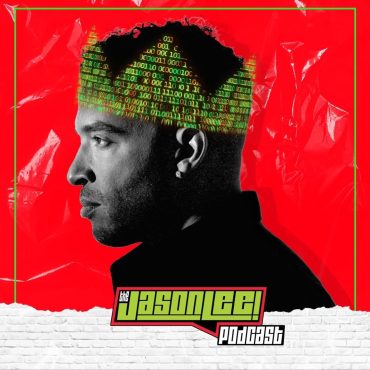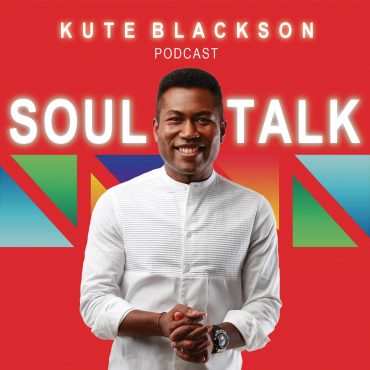
Emancipation, Reconstruction, and Women in the Black Church
Our Scripture verse for today is Acts 17:26-27 which reads: “And hath made of one blood all nations of men for to dwell on all the face of the earth, […]
 play_arrow
play_arrow
 play_arrow
play_arrow
 play_arrow
play_arrow
 play_arrow
play_arrow
 play_arrow
play_arrow
The World Needs You Now – A Life Changing Invitation podcast
 play_arrow
play_arrow
THE FRUIT LOOPS TASTE CHALLENGE EXPOSED! -You Should Know Podcast- podcast
 play_arrow
play_arrow
Make life harder (and better): Learn another language. podcast
 play_arrow
play_arrow
Stop Announcing, Start Becoming podcast
 play_arrow
play_arrow
What Makes Men Feel Insecure podcast
 play_arrow
play_arrow

Our Scripture verse for today is Isaiah 40:31 which reads: “But they that wait upon the Lord shall renew their strength; they shall mount up with wings as eagles; they shall run, and not be weary; and they shall walk, and not faint.”
Our History of Black Americans and the Black Church quote for today is from Lee June, a professor at Michigan State University and the author of the book, “Yet With A Steady Beat: The Black Church through a Psychological and Biblical Lens.” He said, “While reflecting on the history of the “Black Church,” it is critical to remember that what is called the “Black Church” is not an institution that was developed to stay away from Whites. Rather, slavery, the legacy of slavery, White supremacy, racism, and discrimination were the driving forces leading to its formation and development. Speaking to this point, Dr. Martin Luther King Jr. said, ‘I say ‘so called Negro Church’ because ideally there can be no Negro or white church. It is to their everlasting shame that white Christians developed a system of racial segregation within the church, and inflicted so many indignities upon its Negro worshippers that they had to organize their own churches.'”
In this podcast, we are using as our texts: From Slavery to Freedom, by John Hope Franklin, The Negro Church in America by E. Franklin Frazier, and The Black Church In The U.S. by William A. Banks. If you enjoy this podcast, please feel free to purchase any one of these books from our website, HistoryBABC.com.
Our first topic today is a continuation of some good work done for the “God In America” series titled “The Origins of the Black Church” which was aired by the Public Broadcasting Service. This is just a brief historical overview; we will delve into these topics in greater detail in upcoming episodes.
THE GREAT MIGRATION
Between 1890 and 1930, 2.5 million black people, mostly poor and working class, left their homes in the South and relocated in cities of the North. This influx of Southerners transformed Northern black Protestant churches and created what historian Wallace Best calls a “new sacred order.” Best’s study of the impact of the Great Migration in Chicago explores the dynamics of this transformation. Accustomed to a more emotional style of worship, Southerners imbued churches with a “folk” religious sensibility. The distinctive Southern musical idiom known as “the blues” evolved into gospel music. The themes of exile and deliverance influenced the theological orientation of the churches. Women filled the pews; in Chicago, 70 percent of churchgoers were women. Responding to the immediate material and psychological needs of new congregants, black churches undertook social service programs.
Few ministers were more aware of the impact of the Great Migration than the Rev. Lacey K. Williams of Olivet Baptist Church, the oldest Baptist church in Chicago. In an essay published in the Chicago Sunday Tribune in 1929, Williams argued that black churches must respond to the practical and spiritual needs of people struggling to adjust to urban life; the churches must be “passionately human, but no less divine.” Under Williams’ leadership, Olivet developed a program of progressive social reform, reaching out to new migrants, providing them with social services and knitting them into the larger church community. Olivet Church became the largest African American church — and the largest Protestant church — in the entire nation.
In the South, rural immigrants poured into major cities such as Atlanta and Birmingham, where they contributed to established congregations and encouraged the growth of new ones. But in rural areas, churches struggled to cope with the weakening social structure that had once sustained them. Ministers were not always educated. But it was the lay members — deacons, ushers, choirs, song leaders, Sunday school teachers and “mothers” of the congregation — who gave the churches their vitality and strength. Church socials, Sunday picnics, Bible study and praise meetings encouraged social cohesion, heightened a sense of community and nurtured hope in the face of discrimination and violence. By the 1950s, the infrastructure of black churches and the moral resilience they encouraged had laid the foundation for the crusade that would transform the political and religious landscape of America: the civil rights movement.
We will continue this brief historical overview of the black church in our next podcast.
_______
Our second topic for today is “The Religion of the Slaves: The Christian Religion Provides a New Basis of Social Cohesion, Part 2” from The Negro Church in America by E. Franklin Frazier. He writes:
Unfortunately, we do not possess very detailed records on the religious behavior of the Negroes who became converts to Christianity through the missionary efforts of the Society, nor did the missionaries who worked under the auspices of the Moravians, Quakers, Presbyterians, and Catholics leave illuminating accounts of the response of the Negro slaves to their efforts. We do not know, for example, to what extent the converted slaves resumed their old “heathen” ways or combined the new religious practices and beliefs with the old. In this connection it should be noted that the missionaries recognized the difficulty of converting the adult Africans and concentrated their efforts on the children. However, there is no evidence that there was the type of syncretism or fusion of Christian beliefs and practices with African religious ideas and rituals such as one finds in a religion brought by Africans to Brazil. Despite the reported success in the conversion of Negroes, a study of the situation has revealed that only a small proportion of the slaves in the American colonies could be included among even nominal Christians. In fact, the activities of the Anglican missionaries were directed to individuals whose isolation in the great body of slaves was increased.
_______
Our third topic for today is from “The Black Church in the U.S.: Its Origin, Growth, Contributions, and Outlook” by William A. Banks
In recent days the numbers of “Black Studies” courses and books have proliferated. Black religion is relevant. W. E.B. Du Bois said in 1903 that the problem of the twentieth century is the problem of the color line. Fifty years later, in 1953 he wrote: “I still think today as yesterday that the color line is a great problem of this century. But today I see more clearly than yesterday that back of the problem of race and color, lies a greater problem which both obscures and implements it: and that is the fact that so many civilized persons are willing to live in comfort even if the price of this is poverty. ignorance and disease of the majority of their fellow-men: that to maintain this privilege men have waged war until today war tends to become universal and continuous. and the excuse for this war continues to be color and race.”
It is impossible to successfully deny the race issue still looms large in the American mind. While Blacks grow in self-knowledge, and while national magazines devote issues to the problem, racial “polarization” continues. The Sunday morning worship hour remains to a marked degree an hour of segregation. Affirmative action, racial profiles (Driving While Black), White police brutality—all bear evidence to the hatred existing between the races. Possibly one step toward reconciliation is to hear the voice of the God of all history. the Lord Jesus Christ, and see His hand moving without respect of faces or races in the midst of the children of disobedience. It is hoped this particular study will help achieve that end.
And we will continue more of this study in future episodes.
_______
Our fourth topic for today is a continuation of our look at the earliest African states from the book, “From Slavery to Freedom” by John Hope Franklin. We have already looked at Ghana and Mali. Today, we are going to begin looking at Songhay.
The kingdom that was in a position to dispute the power of Mali by the 15th century was Songhay. The latter had experienced a long and checkered career as a kingdom. Beginning in the early eighth century at Gao, near the bend of the Niger, it had remained a small, relatively inconsequential state for many years. In fact, it fell under the powerful influence of Mali, and for a time its rulers were vassals of Mansa-Musa and his successors. Undaunted, the Songhay waited for the first opportunity to throw off the yoke of Mali and to assert their own sovereignty. This they had succeeded in doing by 1355, with Sonni Ali later taking Songhay, as Philip Curtin has said, “from a small riverain state to a great empire.”
When Sonni Ali began his rule of the Songhay, most of West Africa was ripe for conquest. Mali was declining, and the lesser states, though ambitious, had neither the leadership nor the resources necessary to achieve dominance. The hour of the Songhay had arrived. Sonni Ali conceived of a plan to conquer the entire Niger region by building a river navy that would seize control of both banks. By 1469 he had conquered the important town of Timbuktu and then proceeded to capture Jenne and other cities. Finally he attacked the kingdom of Mali, and with its conquest the Songhay kingdom was catapulted into a position of primacy in West Africa. Because of his lack of enthusiasm for the religion of Islam, there was considerable opposition to the rise of Sonni Ali, but he was undaunted. Consequently, his years were filled with fighting, but when he died In 1492 the kingdom of Songhay was firmly established as the dominant power of West Africa.

Our Scripture verse for today is Acts 17:26-27 which reads: “And hath made of one blood all nations of men for to dwell on all the face of the earth, […]







Copyright Blackpodcasting 2025